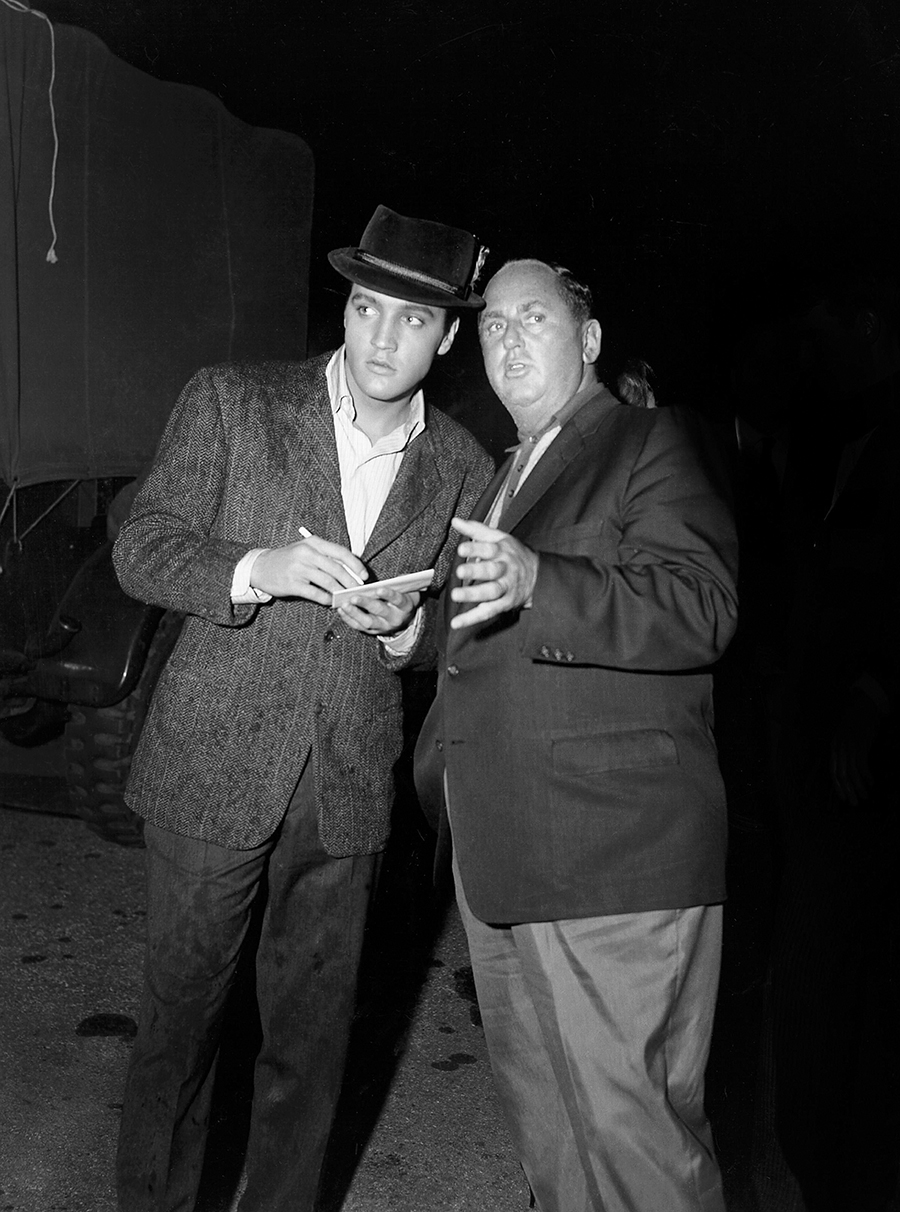The 2022 release of the film of Elvis might have been a big hit, but its reference to Huntington missed the mark.
By James E. Casto
HQ 121 | Spring 2023
The hit movie Elvis follows the life of the famous rock ‘n’ roll star as seen through the eyes of his manager Col. Tom Parker. In a sharp departure from his usual “good guy” roles, Tom Hanks plays Parker as a wheeler-dealer, who was both a genius and a scoundrel.
It’s true that Parker made Elvis Presley’s boyhood dream of stardom come true, but he was also a fraud and a cheat who shamelessly pocketed as much as 50% of the singer’s multimillion-dollar earnings. At one point in the movie, Hanks as Parker says he was “born in Huntington, West Virginia.” That was a claim the real Parker frequently voiced.
But no, Parker wasn’t born in Huntington. Far from it. In fact, he wasn’t even born in this country. We now know that Parker was a native of Breda, a city in the southern part of the Netherlands. He was born there in June 1909, the seventh child of a delivery driver and his wife. His real name was Andreas Cornelis van Kuijk.
Parker left his home country and illegally entered the United States, likely through Canada. It’s been speculated that he fled Breda to avoid police questioning in the murder of a woman there. He changed his name to Tom Parker because that was the name of the officer who interviewed him when he joined the Army in the early 1930s.
Parker’s stay in the Army proved brief. When he went AWOL (absent without leave), he was quickly captured and imprisoned. On examination he was deemed a psychopath and given a dishonorable discharge. Later, to avoid the WWII draft, he went on an eating binge. When he weighed in at more than 300 pounds, he was classified “4-F” and thus was excused from military service.
When he was in the Army, Parker was a lowly private. But much later he got a big promotion when Louisiana Gov. Jimmie Davis gave him the honorary title of colonel in the Louisiana State Militia as a “thank you” for helping in his successful election campaign. Parker loved the title and used it for the rest of his life.
Parker apparently chose Huntington as his make-believe birthplace more or less at random, picking it because it was one of the many small towns along the routes of the traveling carnivals the Dutch teenager worked for when he first came to this country.
Leaving the carnival life behind in the late 1930s, Parker moved into music promotion. He worked with one of the first popular crooners, Gene Austin, then with country singers Eddy Arnold and Hank Snow.
In 1955 he met Presley and began advising the young singer, who at that time was signed with a small recording company, Sun Records. He convinced record giant RCA Victor to buy Presley’s contract from Sun for $35,000. That proved a smart investment, as Presley’s first single with RCA, “Heartbreak Hotel,” immediately shot to the top of the charts. Parker also started arranging concert dates and TV appearances, including Presley’s famous appearances on The Ed Sullivan Show.
By the end of 1956, he and Presley had signed a contract making Parker the singer’s “sole and exclusive adviser, personal representative and manager.”
What followed was the singing star’s many movies, an avalanche of Elvis-themed products and, ultimately, a series of spectacular concerts in Las Vegas. Concert offers came from Tokyo, London and other foreign cities, but Parker turned them all down. He wasn’t willing to allow Presley to fly off alone, and he couldn’t travel with him because he didn’t have a passport. He couldn’t get one because he didn’t have a U.S. birth certificate. He might have been eligible to become a naturalized U.S. citizen but, for some reason, never made an effort to do so.
The Elvis movie shows the singer firing his manager during a Las Vegas show after realizing he’s being deceived by the colonel. This is not what happened in real life.
According to Alanna Nash, who wrote The Colonel: The Extraordinary Story of Colonel Tom Parker and Elvis Presley, Presley and the colonel had a loud argument backstage in Vegas in 1974, which resulted in both parties quitting their roles; but Presley did not bring the argument onto the stage. What is true, however, is that the colonel afterward drew up an invoice for what he claimed Presley owed him. Presley couldn’t pay the huge sum and eventually went back to working with the colonel until the star died in 1977. As for Parker, he died in Vegas in 1997. He was 87 years old.





